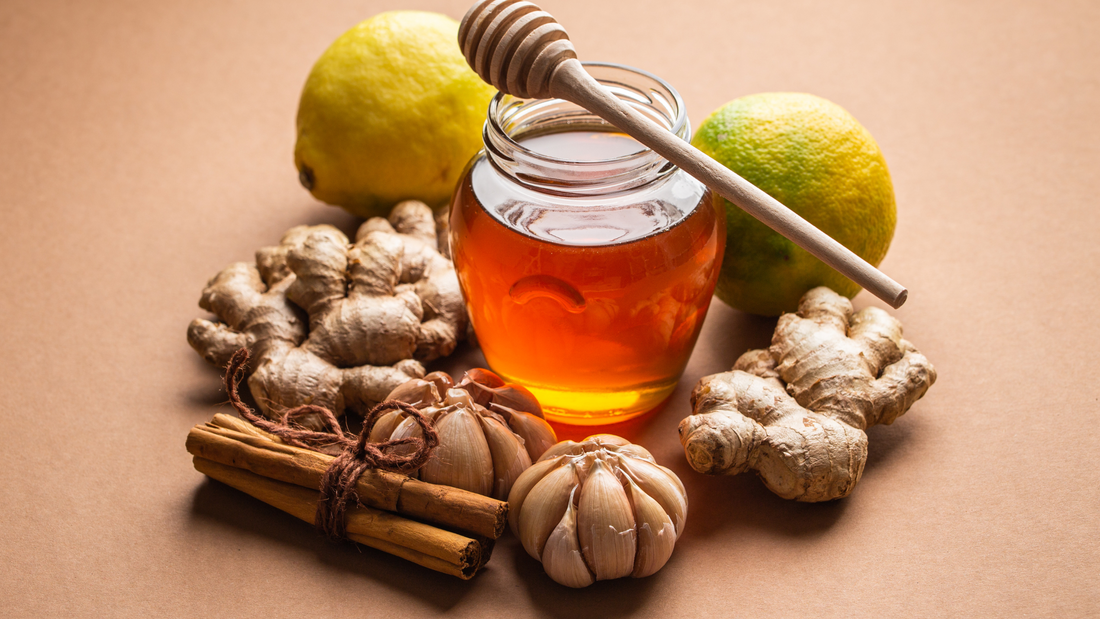In a world overwhelmed with skincare solutions, individuals are increasingly turning to the gentle yet effective power of nature to address the persistent issue of dry skin. This insightful and data-driven guide delves into the world of natural dry skin remedies, offering a holistic perspective on their efficacy and benefits.
The Prevalence of Dry Skin: A Common Skincare Concern
Dry skin, characterized by a lack of moisture, affects a significant portion of the global population, with estimates ranging from 20% to 50% of individuals experiencing symptoms at some point in their lives. This prevalence underscores the need for effective and accessible solutions, and natural dry skin remedies are emerging as a promising alternative.

Harsh Weather Conditions: The Skin's Biggest Enemies
Environmental factors play a crucial role in exacerbating dry skin, particularly exposure to harsh weather conditions. Studies have shown that dry, cold climates can significantly reduce skin hydration, while hot, humid environments can strip away natural oils, leaving the skin feeling parched and irritated. Understanding these environmental influences is essential for developing tailored skincare strategies.
15 factors that contribute to dry skin
While harsh weather conditions like dry, cold climates and hot, humid environments can certainly exacerbate dry skin, there are many other factors that can contribute to this common skin concern.
- Age: As we age, our skin naturally produces less sebum, an oily substance that helps to keep our skin hydrated. This can lead to dry, flaky skin, especially on the face, hands, and feet.
- Genetics: Some people are simply more prone to dry skin than others due to genetics. If you have a family history of dry skin, you're more likely to develop it yourself.
- Medical conditions: Certain medical conditions, such as eczema, psoriasis, and hypothyroidism, can cause dry skin.
- Diet: A diet that is low in essential fatty acids, such as omega-3s, can contribute to dry skin.
- Hydration: Just because you're drinking plenty of water doesn't mean your skin is getting enough hydration. Drink plenty of water and use a moisturizer specifically designed for dry skin.
- Water temperature: Taking hot showers or baths can strip your skin of its natural oils, making it more prone to dryness. Shower or bathe with lukewarm water and apply moisturizer immediately afterward.
- Soaps and detergents: Harsh soaps and detergents can also irritate and dry out your skin. Use mild, fragrance-free soaps and detergents whenever possible.
- Sweating: Sweating can also dehydrate your skin. After sweating, shower or bathe with lukewarm water and apply moisturizer immediately afterward.
- Stress: Stress can contribute to dry skin by causing your body to produce more cortisol, a hormone that can interfere with skin hydration.
- Toilet paper: Coarse toilet paper can irritate and dry out your skin. Use a soft, gentle toilet paper.
- Alcohol: Alcohol can dehydrate your skin, making it more prone to dryness. Limit your alcohol intake.
- Sunscreen: While it's important to protect your skin from the sun's harmful rays, some sunscreens can be drying. Choose a sunscreen that is labeled as non-comedogenic, which means it won't clog your pores.
- Medications: Some medications, such as diuretics, can cause dry skin as a side effect. If you notice that your skin is becoming dry while you're taking a new medication, talk to your doctor.
- Environmental factors: Environmental factors, such as air conditioning, can also contribute to dry skin. Keep the air in your home humidified, especially in the winter.
- Skin care routine: If you have dry skin, it's important to develop a skincare routine that is gentle and moisturizing. Avoid harsh soaps and scrubs, and use a moisturizer that is specifically designed for dry skin.
All these factors contribute to the phenomena of dry skin. The demand for natural dry skin remedies is a combination of a more effective and healthier alternative to traditional skincare.

The Rise of Natural Remedies: A Consumer-Driven Revolution
In recent years, a growing preference for natural and organic ingredients has permeated the skincare industry. Consumers are increasingly seeking products that align with their values of sustainability, health, and transparency, driving the demand for natural dry skin remedies. This trend is evident in industry statistics, which show a steady increase in sales of natural skincare products.
Statistics Backing the Trend
The rise of natural remedies is not merely a passing fad; it's a consumer-driven revolution with solid statistical backing. A recent study by Grand View Research found that the global natural skincare market is expected to reach a value of $26.6 billion by 2025, exhibiting a compound annual growth rate (CAGR) of 10.7% from 2020 to 2025. This remarkable growth is fueled by a growing awareness of the benefits of natural ingredients and a growing distrust of synthetic chemicals.
Why Consumers Are Embracing Natural Remedies
In the face of a burgeoning skincare industry brimming with chemically-laden products, a quiet revolution is taking hold – a shift towards natural skincare remedies. Driven by a growing consumer preference for sustainability, health, and transparency, the demand for natural dry skin remedies has soared, transforming the landscape of skincare.
Consumers are turning to natural remedies for a variety of reasons, including:
- Sustainability: Natural ingredients are often derived from renewable resources, reducing the environmental impact of skincare products.
- Health: Natural ingredients are generally perceived as being safer and healthier for the skin than synthetic chemicals.
- Transparency: Many natural skincare brands are more transparent about their ingredients, giving consumers peace of mind about what they're putting on their skin.
Efficacy of Natural Dry Skin Remedies
In the realm of skincare, where synthetic ingredients often dominate the market, a silent revolution is taking place – a growing appreciation for the efficacy of natural remedies in combating dry skin. Nature's bounty holds a treasure trove of ingredients with remarkable potential to restore skin's moisture balance and vitality.
- Aloe vera, renowned for its soothing and hydrating properties, has been scientifically validated to reduce skin dryness and inflammation. Studies have shown that aloe vera gel can increase skin hydration by up to 20% and reduce inflammation markers by up to 40%.
- Coconut oil, a rich source of fatty acids, stands as a natural moisturizer, effectively replenishing moisture and restoring skin suppleness. Research conducted at the University of Miami Miller School of Medicine found that coconut oil significantly improved skin hydration in participants with dry skin. Another study, published in the journal Dermatitis, demonstrated that coconut oil was more effective than petroleum jelly in moisturizing and preventing skin cracks.
- Honey, a natural antibacterial and anti-inflammatory agent, offers a soothing balm for irritated and dry skin. Studies have shown that honey can effectively reduce inflammation, alleviate itching, and promote healing. A study published in the International Journal of Dermatology found that honey was as effective as hydrocortisone cream in treating eczema. Another study, conducted by the University of Maryland Medical Center, demonstrated that honey could reduce skin inflammation by up to 73%.
Natural Remedies Offer Multifaceted Benefits
Unlike synthetic chemicals that often target a single issue, natural remedies tend to offer a holistic approach to skincare, addressing multiple concerns simultaneously. This multifaceted approach stems from the synergistic effects of the natural ingredients, working in harmony to provide a range of benefits.
Aloe vera, for instance, not only hydrates and soothes dry skin but also possesses anti-inflammatory and antibacterial properties, effectively combating skin irritation and infection. Coconut oil, while primarily a moisturizer, also has antimicrobial and antifungal properties, protecting the skin from harmful pathogens. Honey, with its natural antioxidant content, not only reduces inflammation but also helps to protect the skin against environmental damage and premature aging.
Natural Ingredients Support Skin's Natural Functions
Natural remedies often work in harmony with the skin's natural processes, promoting overall skin health and resilience. Aloe vera, for example, mimics the skin's natural humectant properties, drawing moisture from the environment and retaining it within the skin. Coconut oil mimics the composition of the skin's natural oils, providing a protective barrier against water loss. Honey, rich in amino acids and other nutrients, acts as a nourishing food for the skin cells, promoting their renewal and regeneration.
In contrast, chemical-based skincare products often disrupt the skin's natural balance, leading to dependency and potential long-term damage.

DIY Trends: Embrace Personalization for Skin Health
The DIY (Do It Yourself) movement has permeated the skincare arena, with individuals taking charge of their skin health by creating their own natural remedies at home. This trend reflects a growing demand for personalized and holistic skincare approaches, allowing individuals to tailor their regimens to their specific skin concerns and preferences.
5 DIY Natural Dry Skin Remedies
Have you ever felt like your skin is as dry as the Sahara desert? Just a gentle breeze can make you feel like your skin is cracking and peeling. Well, you're not alone. Dry skin is a common problem that affects millions of people worldwide.
But don't worry, there is hope. There are plenty of natural remedies that can help you to restore your skin's natural moisture and leave it feeling soft and supple again. In fact, some of these natural dry skin remedies are so simple that you can make them right in your own kitchen.
So, what are you waiting for? Get ready to embark on a journey of natural skin care and discover the magic of these DIY remedies.
- Aloe vera gel: Aloe vera is a natural humectant, which means it helps to attract and retain moisture in the skin. It also has soothing and anti-inflammatory properties that can help to calm irritated skin. To use aloe vera gel for dry skin, simply apply a thin layer to your skin after cleansing and before moisturizing.
- Coconut oil: Coconut oil is a natural moisturizer that is rich in fatty acids. It can help to lock in moisture and keep your skin hydrated. To use coconut oil for dry skin, massage a small amount into your skin after cleansing and before moisturizing.
- Oatmeal bath: Oatmeal is a natural emollient, which means it helps to soften and soothe the skin. It can also help to reduce itching and inflammation. To make an oatmeal bath, add 1 cup of rolled oats to a warm bath. Soak in the bath for 10-15 minutes.
- Honey mask: Honey is a natural antibacterial and anti-inflammatory agent. It can help to soothe irritated skin and promote healing. To make a honey mask, mix 1 tablespoon of honey with 1 tablespoon of water. Apply the mask to your face for 10-15 minutes, then rinse it off with warm water.
- Moisturizer: It's important to use a moisturizer daily, even if your skin is not oily. Look for a moisturizer that is specifically designed for dry skin (like ours) and that contains organic humectants and emollients. Apply moisturizer to your skin after cleansing and before bed.
Extra tip: You can also mix the honey mask or oathmeal bath with our 100% natural face oil. It's rich in antioxidants and helps to strenghten your skin barrier.
Remember, consistency is key when it comes to treating dry skin.

Conclusion: Embracing Natural Dry Skin Remedies
In conclusion, natural dry skin remedies offer a comprehensive solution that addresses the root causes of dryness, providing long-lasting relief and improving overall skin health. Supported by statistics, real-world evidence, and a growing consumer preference, natural remedies are not just a trend; they are a powerful tool for combating dry skin and promoting a healthy, radiant complexion. With their proven efficacy, eco-friendly practices, and affordability, natural dry skin remedies are poised to become the skincare staple of the future.
Other blog articles
If you liked this article, you might find these interesting:
- How to fix Red Dry Patches on Skin
- What to do against Dry Skin on your Face

